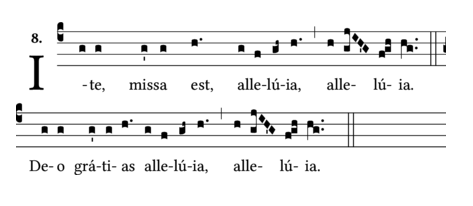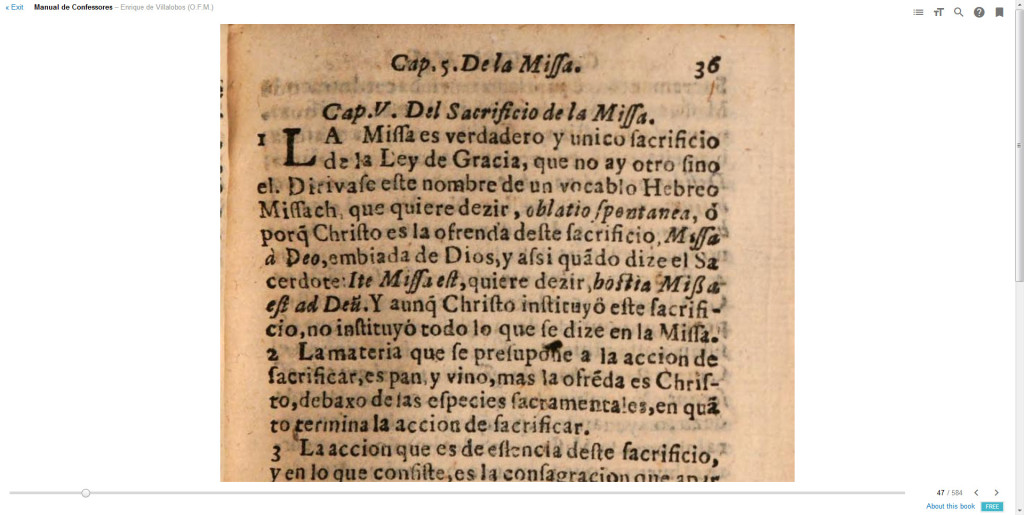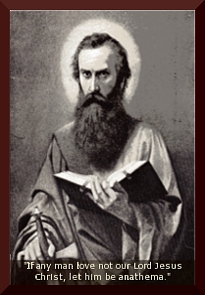 For me, the “Ite, missa est” has always been an enigmatic expression, and having it explained to the laity that it means “Go, you are dismissed, sent out!” – to which the response is, “Thanks be to God!” – does not seem satisfactory. The response makes it seem that the faithful are only too glad that the liturgy is finally over!
For me, the “Ite, missa est” has always been an enigmatic expression, and having it explained to the laity that it means “Go, you are dismissed, sent out!” – to which the response is, “Thanks be to God!” – does not seem satisfactory. The response makes it seem that the faithful are only too glad that the liturgy is finally over!
The website for the U.S. Conference of Catholic Bishops has this explanation: “The word Mass comes from the Latin word, Missa. At one time, the people were dismissed with the words ‘Ite, missa est’ (literally meaning “Go, she—meaning you, the Church—has been sent”).
According to the The Catholic Encyclopedia on the New Advent website, the first use of the term “Missa” was used by St. Ambrose in the 4th century when writing to his sister Marcellina. St. Ambrose says, ‘The next day (it was a Sunday) after the lessons and the tract, having dismissed the catechumens, I explained the creed [symbolum tradebam] to some of the competents [people about to be baptized] in the baptistry of the basilica. There I was told suddenly that they had sent soldiers to the Portiana basilica. . . . But I remained at my place and began to say Mass [missam facere coepi].
Does it make sense that he would begin to celebrate the “dismissal”; that St. Ambrose remained at at his place and began to say the “has been sent”?? Maybe I’m thickheaded because this is incomprehensible to my mind.
Perhaps there is a better explanation.
Someone provided me with a link to an antiquarian book, MANUAL DE CONFESORES, written by Fr. Enrique de Villalobos, lecturer at the royal school of St. Francis in Salamanca, Spain. An inscription in the book says that permission was granted in 1639 for the book to be printed. The Manual gives an explanation of the expression in a way that appeals to sound reason and to traditional Catholic doctrine, that is, if he is correct about the word MISSACH. But before I give it to you, be aware that New Advent dismisses it out of hand without any explanation.
Here is what the Manual says. The translation from the Spanish is from this author:
 “The Mass is the true and only Sacrifice of the Law of Grace; that there is no other than It. The name is derived from the Hebrew word “Missach”, which means “oblatio spontanea”, or, since Christ himself is the Offering of this Sacrifice, Missa a Deo, a gift of God, and thus when the Priest says “Ite Missa est”, it means “Hostia Missa est ad Deu.”
“The Mass is the true and only Sacrifice of the Law of Grace; that there is no other than It. The name is derived from the Hebrew word “Missach”, which means “oblatio spontanea”, or, since Christ himself is the Offering of this Sacrifice, Missa a Deo, a gift of God, and thus when the Priest says “Ite Missa est”, it means “Hostia Missa est ad Deu.”
So according to this 17th century theologian of Salamanca, the voluntary Oblation, the Victim, has been offered to God, to which with heartfelt gratitude, we may, indeed, say “Deo gratias” ! It makes perfect sense!
The New Advent website denies this explanation, saying: “We may dismiss at once such fanciful explanations as that missa is the Hebrew missah. (sic) Notice that Fr. de Villalobos writes, “Missach”.
Since this blog does not allow for comments on its pages, I would be interested in hearing our readers’ thoughts regarding this post. You may e-mail:
kankakeelatinmassATaltaredesignDOTcom



